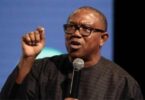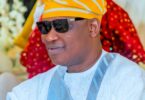One year has just gone by since the country held a general election to elect the president of the country, members of the National assembly, as well as governors and members of the state House of Assembly. But what are the significant changes that have taken place, KUNLE ODEREMI asks.
FEBRUARY 25 and March 11, 2024 came without most Nigerians recalling how crucial those dates have become in the history of the country. They took little interest in the significance of the events and the strategic place they now occupy.
Those dates became watersheds because the presidential/National Assembly elections and the governorship/state Assembly polls were held same day across the land. While the presidential election was nationwide, the governorship poll was conducted by the Independent National Electoral Commission (INEC) in 28 out of the 36 states making up the country. The elections were particularly epochal, because the exercise marked 24 years of unbroken civil rule in uninterrupted democracy in a country that had seen more military autocracy. Being the seventh elections since 1999, the polls attracted scores of local and international observers to further underscore the significance.
Many observers described the 2023 elections as the most expensive in the annals of the country. The facts and figures that surrounded the elections lend credence to the assertion. The general election exercise gulped more than N355 billion, apart from the quantum of other forms of logistics and personnel deployment in the buildup, as well as during and after the elections. Whereas an additional 10 million prospective voters swelled the initial 84 million already in the voter register for the poll, the election recorded a lower number of those that eventually exercised their franchise in the two-phase poll. Quite a number of other stakeholders differ on if the feats achieved by the country through the 2023 general election actually surpassed the gains, and expanded the frontiers Nigeria had achieved after restoring civil rule in 1999. The divergence of opinion is because of the core issues arising from the 2023 poll, most of which have stigmatised elections over time and years.
For more than a decade, the country had tried to provide answers to the recurring issues, including ballot box snatching, stuffing and destruction by suspected criminals; vote selling and buying; security breaches and parties undermining their constitutions in the choice of candidates. Tragically, the offseason elections conducted in November 2023 suffered from those gross electoral malpractices and malfeasance; some lapses witnessed on the part of the political parties. After the hiccups that came to the fore in the elections, the general expectation was that all stakeholders would deploy the lessons learnt from that exercise to herald a new dawn and evolve an enviable template for the governorship elections scheduled for Edo and Ondo states in 2024.
Under the law, the Independent National Electoral Commission (INEC) is mandated to proclaim the date and schedule of elections. The proclamation is usually predicated on a chain of activities by the commission ahead of the elections. While announcing the dates for the 2023 elections on February 26, 2022, the INEC boss said the new date was in line with the provisions of the Electoral Act that states that notice be published at least 360 days before the elections. What this portends is that the date for the next general elections is fast-beckoning on Nigerians, in spite of the obvious all motion and no movement that has played out after the last exercise.
The Build-Up
The build-up to the poll was threatened by frightening insecurity, battered economy, mass poverty in the land, coupled with a largely compromised political class, who see parties as mere vehicles to grab power not necessarily for altruistic reasons. The prevalent insecurity was pronounced; more economic discomfort and hardship inflicted on the citizens due to a blind drive by authorities to redenominate the local currency (Naira). It created hyperinflation as the cost of living hit the roof. A year after the elections, other core issues are persist, among them violence ahead of, and during, polling; the suppression of people’s right to vote; mutual ethnic suspicion and a low turnout. These factors, including the low level of technological inputs constitute the bane of the nation’s electoral process. There is also a cankerworm of disenfranchisement of eligible voters through the connivance of some power brokers with political thugs during elections. Though the use of technology has been stepped, it has not fully taken care of the incidence of ballot box snatching and stuffing, multiple voting, over voting, alteration of results, and other related electoral malfeasance that played out at the off-season polls held in November 2023. The other snag is the scale of ethnic politics which persists, just as the low voter turnout crisis.
Rash of litigation
The rash of litigation arising from the 2023 general election seems settled months after the poll. This is partly due to some amendments done in the extant laws, especially the Electoral Act 2022. According to some legal experts, the amendments have reduced the time frame for the disposal of electoral disputes. For instance, they cited Section 285 of the 1999 Constitution (First Alteration) Act 2010 introduces new Subsections (5), (6) & (7) to buttress their position. Section 5 states: “An election petition shall be filed within 21 days after the date of declaration of results of the election, while Section 6 provides that, “An election tribunal shall deliver its judgment in writing within 180 days from the date of the filing of the petition (six months). Section 7 is another portion readily cited by the lawyers. It reads: “An appeal from decision of an election tribunal or Court shall be heard and disposed of within 60 days from the date of the delivery of judgment of the tribunal.” According to them, with the amendment, electoral disputes are now to span a maximum of eight months, from Election Tribunal to Appeal.
However, the dingdong over cases bordering on electoral offences keeps swivelling like the barber’s chair. Hamstrung by funds, the INEC says it is collaborating with NBA to ensure that perpetrators and financiers of electoral violence are brought to justice.
The 2023 general election and the off-season polls witnessed vote-buying, where politicians induced voters with cash and gifts. Such manipulative tendencies undermine the integrity of the electoral process. The Transition Monitoring Group (TMG) recalled instances of violence, ballot box snatching, and the disruption of voting activities by political thugs, causing fear and insecurity among voters. Such incidents not only disenfranchised citizens but also cast doubts on the overall legitimacy of election results.
Other scholars and professionals have also canvassed for more proactive measures towards raising the bar in terms of standard of subsequent elections in the country. One of them is Saheed Olasunkami Oduola, who said all the stakeholders must be involved in the effort to nuance the integrity of the electoral process.
He said: “The Nigerian government, political parties, and civil society groups need to take steps to improve election security, defuse tensions, and mitigate the risks of violence. This should not only include the deployment of adequate security personnel and polling stations, but also involve early warning systems and the use of proactive intelligence gathering to prevent electoral fraud and violence.
INEC worries
For INEC, the coming months are very crucial in the discharge of its duty. With the off-season elections coming up in Edo and Ondo states, the issues that plagued similar polls in Kogi, Imo and Bayelsa states held in November last year largely subsist, especially given the laissez-faire attitude of the political parties and their major actors. Cases of electoral fraud, ballot snatching, voter inducement and compromise on the party a few INEC personnel left much to be desired. But while the commission has moved to discipline the erring officials, there are scores of outstanding aces bordering on electoral frauds on the ground. But to stem the tide, the Chairman of the commission, Professor Mahmood Yakubu, for the umpteenth time, underscored the need by parties to always follow their own rules for the conduct of primaries. He noted at the first regular quarterly consultative meeting with political parties, in Abuja that the INEC found the infighting within parties disruptive of its activities, causing it to spend huge sums of money on court cases to defend itself. He said, “I urge political parties to adhere strictly to your proposed dates and modes of primaries. Frequent changes, as we witnessed recently during the Edo primaries, are not only disruptive but costly. Some of these infractions lead to unnecessary litigation among party members in which the commission is always joined as a party. The legal fees and cost of producing Certified True Copies of documents can be used more productively in other electoral activities by both the political parties and the commission. We must find a solution to this situation.”
The INEC boss had also expressed a major concern over some core issues that characterised the last general election, describing the poll as one that “produced the most diverse National Assembly ever.”
One of the heroes of the democracy struggle during the military era, now a professor of Political Science, Sylvester Odion Akhaine, has also spoken on the way forward, pointing out some of the inadequacies that characterised the offseason polls held last November.
He said: “I think the public perception is that INEC did not handle the gubernatorial elections very well. In Imo State, beyond INEC share of the blame, the security situation in Imo State was going to pervert the election. The unknown gunmen have been shooting, killing and destroying security formations and for an election to hold in that kind of atmosphere despite the assurances of Nigeria’s security forces, it was going to be a difficult thing. When you have such a situation all manner of things are going to happen and damage the integrity of the electoral process. That we are going to say that the Muhammed Uwais panel on electoral reform did not propose.
“In terms of making sure that the hand of the executive is removed from the conduct of polls, the panel proposed that, but it was not implemented in full. The man who set up that committee did not stay alive to implement the recommendations; those are the issue. Of course, I agree with you that people don’t act in a vacuum; you are talking about those who want to continue to command influence. Those are the people who subvert that institutional framework that are meant to regulate governance in the country.”
He said the obstacle against a free fair election is man-made, adding that: “There is nothing wrong with the current institutional framework under which they are conducting the elections; it is the personnel and people heading those institutions that are subverting them. There is nothing wrong with those institutions and in terms of reforms; there is nothing new that we are going to say that the Muhammed Uwais panel on electoral reform did not propose.”
He agreed with many other observers that the Uwais recommendations that various stakeholders should be part of appointing individuals to INEC. The don said: “Sincerely believes for the sake of this democracy and the process of conducting elections, we need to bring transparency and processes to bear in the conduct of elections. It is very important.”
NIN: How to modify your name, date of birth, phone number, others — NIMC







